What the TMC Staff Can Do At This Time
By Dr. Eugenio Jose Ramos, President and Chief Executive Officer | December 20, 2025
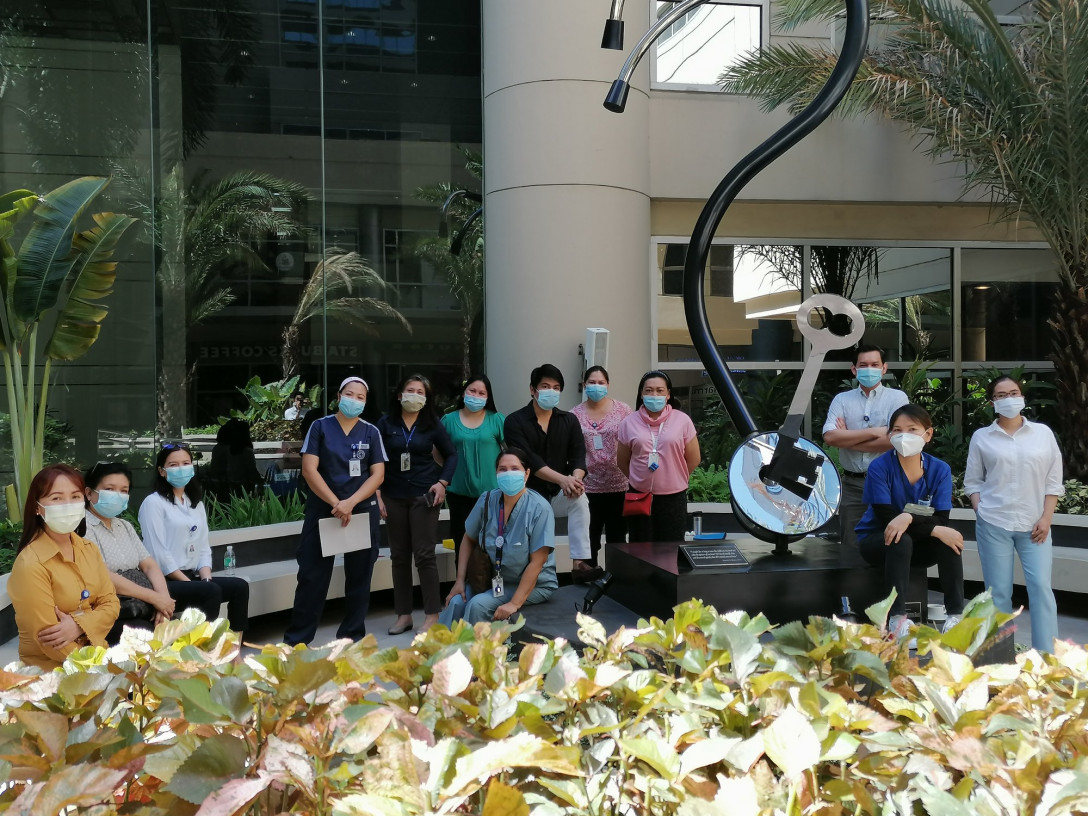
TO THE ENTIRE TMC STAFF,
The pandemic is surging, hospital beds for COVIDS cannot accommodate everyone who needs confinement. Even the ERs are full of ICU-requiring patients. The ICUs are full as well. And the non-COVID patients need our care and attention just as much. Meanwhile, our own front-liners are overstretched, exhausted and can no longer play Super Heroes even if they wanted to. Many of you are frustrated and angry; direct that anger somewhere else, not to the people who are at the front-lines. Stop barking orders to them; be kind. Truth be told, they are our last-line.
People are running scared, some are dying, others will die. We can save some, God bless us, but we cannot save all. Acquire not only a whole-of-hospital mindset, instead look at what’s happening with a whole-of-country mindset. The Big Picture. Be aware of the domino-effect of interconnectivity – of people, programs and processes, of communications, common sense and compassion. Disrupt lengthy processes and procedures that waste time and endanger lives. Collaborate and coordinate across the hospital organization and across the land. While we aim for quality outcomes, we need to be ready to deal with less-than-ideal interventions. And far less satisfactory outcomes. Let’s adapt quickly, innovate, and act! There is no Shangri-La for anyone at this time.
THE HCMG STAFF: Ensure the safety, protection and comfort of the hospital staff, particularly our front-liners and essential workers. Make available all possible support and assistance to them within the limits of our capacity. Do not overlook or take for granted their mental health. Actively be out there- seen, heard and felt, particularly in manpower protection, recruitment, training and deployment. Influence excellence of thought; drive rational behavior.
THE MEDICAL STAFF: Balance science and quality standards with practicable interventions. Lower the volume of your new-found erudition sourced from many places, and go for what helps, what gets things done with a minimum of fuss and delays. You may have impressive answers to many urgent questions, but only the ones that are available or accessible matter. Keep in mind that you are not always in the best position to call the shots.
THE OPERATIONS STAFF: Think fast and move fast! Keep our facilities safe and convenient to use. Disrupt processes; if the processes are still too tedious, disrupt some more. Make open spaces available to the hospital staff to sit back, take deep breaths and empty their minds and hearts of frustrations. Drive efficient use and deployment of manpower involved in the operation of hospital units. No silos can deliver efficient and effective action, ever!
The MARKETING & SALES STAFF: Read well the needs of the times, both inside and outside the hospital, come up with timely, innovative and appropriate services that add value to what TMC offers. Value = the best service under current circumstances at the lowest cost possible, cost being not just price but convenience and timeliness.
The COMMUNICATIONS STAFF: Be ubiquitous when and where clarity and coherence of timely information must predominate over the noise of panic and frenzy. Be there to inform, pacify and inspire. When hope and optimism can change the course of action, lead the way. When the call to face the hard realities is needed, be in the position to ‘control the dialogue’. Timely and effective communication in this time of fear and uncertainty is, by far, the most useful element in mobilizing people towards the right path. We have talented people in our group; our countrymen can use their help significantly!
The I.T. STAFF: Now, more than at any time in the past, is your opportunity and obligation to usher this weary world to the New Normal, where speed of thought transforms into speed of movement with no regard to distance. Provide us the data that must guide us through the challenges of this pandemic and influence how our organization can think and behave with confidence.
The FINANCE STAFF: You cannot provide what you do not have. Consider this terrible pandemic as an opportunity to test our resilience as we run on empty, dancing for rain. We will get through this even as we crawl the distance to get to the oasis. We shall look back to this time, give ourselves a pat on the shoulder, and be proud that we have helped our countrymen with very little help from the government.
Finally, let us keep in mind that we all have to work together as one team, because no one group is above the rest. No one group can do what all the groups can achieve together. Contribute to the solutions; don’t add to the problems. Volunteer your time and services!
Give!
Eugenio Jose F. Ramos, MD, MBA
President & CEO
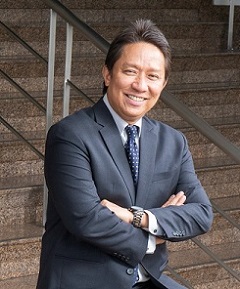
Dr. Eugenio Jose F. Ramos is the President and Chief Executive Officer of The Medical City. Previously, he served as the CEO of The Medical City Iloilo; Director and Chief Operating Officer of Medical Arts Tower, Inc., Director of Proser Health Services Inc., PSI Healthcare Development Services Corp., The Medical City Clark Inc., Guam Healthcare Development, Inc., and The Medical City South Luzon. Dr. Ramos earned his medicine degree from the University of Santo Tomas Faculty of Medicine and Surgery in 1980. He took up his internship and residency in Internal Medicine at The Medical City (1980-1984), and his fellowship training in adult cardiology at the UP-PGH (1985-1986). He is a diplomate and fellow of the Philippine College of Physicians (PCP) and of the Philippine College of Cardiology. He was awarded Distinguished Fellow of the PCP in 1999. Dr. Ramos obtained his MBA in Health at the Ateneo Graduate School of Business (AGSB) in 2008 (gold medalist). Dr. Ramos became PCP’s 45th president in 2009.
What the TMC Staff Can Do At This Time
By , President and Chief Executive Officer
December 20, 2025
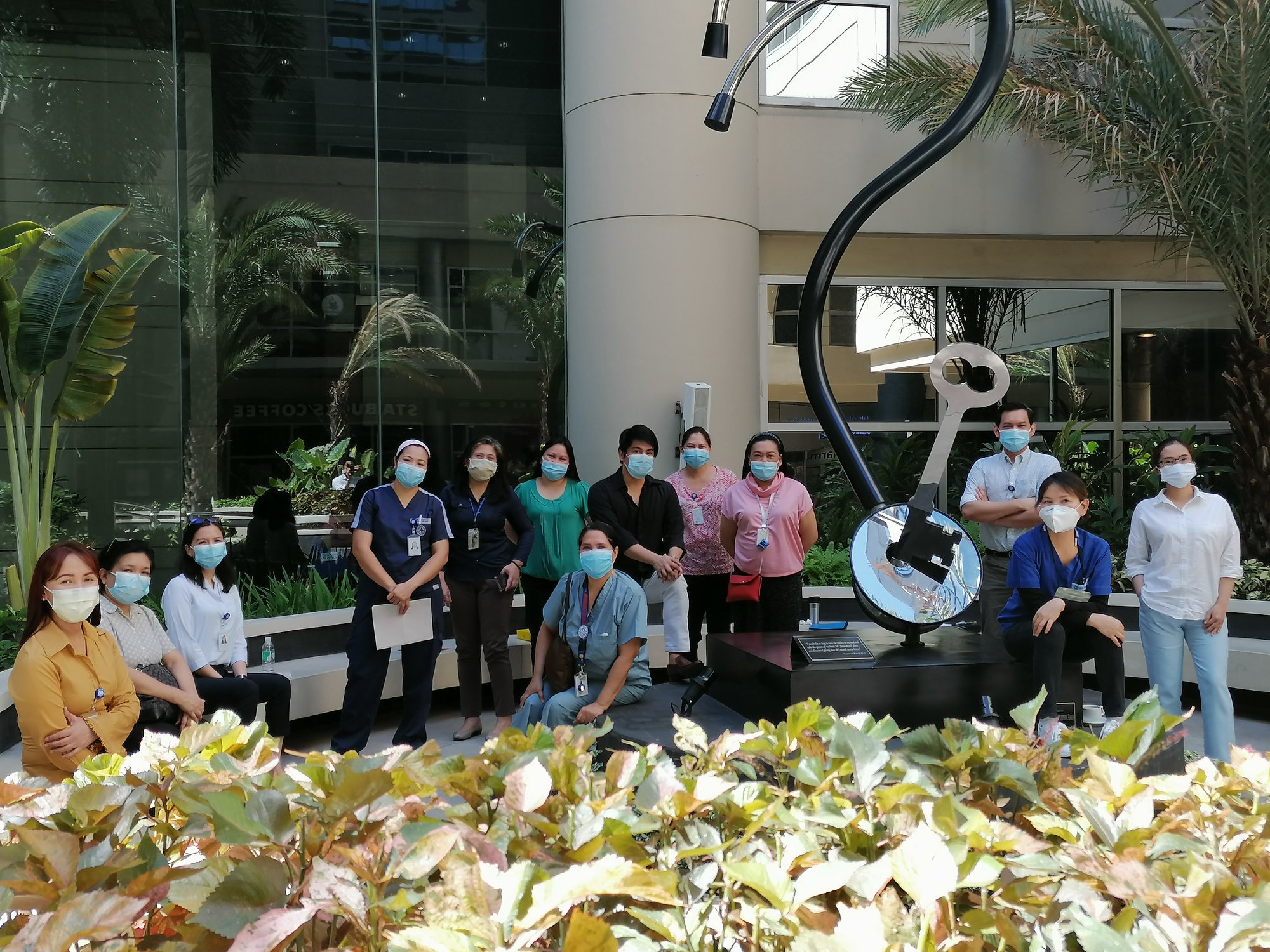
TO THE ENTIRE TMC STAFF,
The pandemic is surging, hospital beds for COVIDS cannot accommodate everyone who needs confinement. Even the ERs are full of ICU-requiring patients. The ICUs are full as well. And the non-COVID patients need our care and attention just as much. Meanwhile, our own front-liners are overstretched, exhausted and can no longer play Super Heroes even if they wanted to. Many of you are frustrated and angry; direct that anger somewhere else, not to the people who are at the front-lines. Stop barking orders to them; be kind. Truth be told, they are our last-line.
People are running scared, some are dying, others will die. We can save some, God bless us, but we cannot save all. Acquire not only a whole-of-hospital mindset, instead look at what’s happening with a whole-of-country mindset. The Big Picture. Be aware of the domino-effect of interconnectivity – of people, programs and processes, of communications, common sense and compassion. Disrupt lengthy processes and procedures that waste time and endanger lives. Collaborate and coordinate across the hospital organization and across the land. While we aim for quality outcomes, we need to be ready to deal with less-than-ideal interventions. And far less satisfactory outcomes. Let’s adapt quickly, innovate, and act! There is no Shangri-La for anyone at this time.
THE HCMG STAFF: Ensure the safety, protection and comfort of the hospital staff, particularly our front-liners and essential workers. Make available all possible support and assistance to them within the limits of our capacity. Do not overlook or take for granted their mental health. Actively be out there- seen, heard and felt, particularly in manpower protection, recruitment, training and deployment. Influence excellence of thought; drive rational behavior.
THE MEDICAL STAFF: Balance science and quality standards with practicable interventions. Lower the volume of your new-found erudition sourced from many places, and go for what helps, what gets things done with a minimum of fuss and delays. You may have impressive answers to many urgent questions, but only the ones that are available or accessible matter. Keep in mind that you are not always in the best position to call the shots.
THE OPERATIONS STAFF: Think fast and move fast! Keep our facilities safe and convenient to use. Disrupt processes; if the processes are still too tedious, disrupt some more. Make open spaces available to the hospital staff to sit back, take deep breaths and empty their minds and hearts of frustrations. Drive efficient use and deployment of manpower involved in the operation of hospital units. No silos can deliver efficient and effective action, ever!
The MARKETING & SALES STAFF: Read well the needs of the times, both inside and outside the hospital, come up with timely, innovative and appropriate services that add value to what TMC offers. Value = the best service under current circumstances at the lowest cost possible, cost being not just price but convenience and timeliness.
The COMMUNICATIONS STAFF: Be ubiquitous when and where clarity and coherence of timely information must predominate over the noise of panic and frenzy. Be there to inform, pacify and inspire. When hope and optimism can change the course of action, lead the way. When the call to face the hard realities is needed, be in the position to ‘control the dialogue’. Timely and effective communication in this time of fear and uncertainty is, by far, the most useful element in mobilizing people towards the right path. We have talented people in our group; our countrymen can use their help significantly!
The I.T. STAFF: Now, more than at any time in the past, is your opportunity and obligation to usher this weary world to the New Normal, where speed of thought transforms into speed of movement with no regard to distance. Provide us the data that must guide us through the challenges of this pandemic and influence how our organization can think and behave with confidence.
The FINANCE STAFF: You cannot provide what you do not have. Consider this terrible pandemic as an opportunity to test our resilience as we run on empty, dancing for rain. We will get through this even as we crawl the distance to get to the oasis. We shall look back to this time, give ourselves a pat on the shoulder, and be proud that we have helped our countrymen with very little help from the government.
Finally, let us keep in mind that we all have to work together as one team, because no one group is above the rest. No one group can do what all the groups can achieve together. Contribute to the solutions; don’t add to the problems. Volunteer your time and services!
Give!
Eugenio Jose F. Ramos, MD, MBA
President & CEO

Dr. Eugenio Jose F. Ramos is the President and Chief Executive Officer of The Medical City. Previously, he served as the CEO of The Medical City Iloilo; Director and Chief Operating Officer of Medical Arts Tower, Inc., Director of Proser Health Services Inc., PSI Healthcare Development Services Corp., The Medical City Clark Inc., Guam Healthcare Development, Inc., and The Medical City South Luzon. Dr. Ramos earned his medicine degree from the University of Santo Tomas Faculty of Medicine and Surgery in 1980. He took up his internship and residency in Internal Medicine at The Medical City (1980-1984), and his fellowship training in adult cardiology at the UP-PGH (1985-1986). He is a diplomate and fellow of the Philippine College of Physicians (PCP) and of the Philippine College of Cardiology. He was awarded Distinguished Fellow of the PCP in 1999. Dr. Ramos obtained his MBA in Health at the Ateneo Graduate School of Business (AGSB) in 2008 (gold medalist). Dr. Ramos became PCP’s 45th president in 2009.
Related News
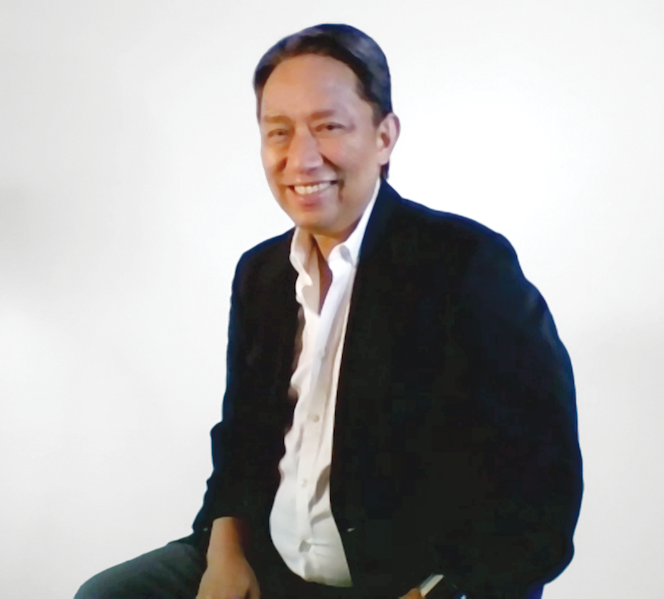
July 27, 2020
Unmasking life, death & fear
The coronavirus disease 2019 (COVID-19) crisis has taught us many important lessons that should guide us in the decisions we make as we put an order in, and add value to our lives — individually and as members of society. The disruption that it has caused has removed deterrents and distractions that we had to live within the decades that preceded it — the old normal that defines us as a people and explains why we are where we are.
We all have our own stories to tell, but none more compelling than stories of triumph — of life over death, resilience over fear, human kindness over greed and indifference, and enlightened leadership over mediocrity and bigotry.
COVID-19 has shown us many silver linings and provides opportunities for leadership to those who have an accurate appreciation of reality. Unless we give ourselves the time to reflect deeply on what has happened, we will just remember the fear, pain and inconvenience, and miss out on why humanity is so inspiring.
“ The months in-between have been a blur, punctuated by the human drama of fear and loss, grit and joy, relentless work and little rest. ”
My team and I started 2020 with a lot of confidence and enthusiasm, eager to build on our achievements in 2019 and to start the year right. The Medical City enterprise — all of five hospitals and 50 ambulatory clinics in the country — was evolving, gunning for an agile and integrated network through digital transformation, establishing its footprint in the health ecosystem by pursuing innovative programs in partnership with LGUs, whose leaders saw health as central to human development. We had the usual challenges to hurdle, resistance to address, and old ways to discard, but there was a lot going for us — the momentum for change was accelerating.
Now, seven months later, we are nowhere near our financial targets for the year at midpoint, but what we have achieved is so different from what we had planned. Something out-of-the-ordinary happened and we found purpose and pride by serendipity! The months in-between have been a blur, punctuated by the human drama of fear and loss, grit and joy, relentless work and little rest.
The strength of character and resiliency that we did not see before the crisis presented themselves, unshackled from the job designs that had limited our expectations of our employees. The crisis removed the blinders to the promise of the future, provided by the young; in the same light, it exposed the helplessness of those who could not move forward because of fear.
“ In the frenzy of life-and-death situations and threats to one’s health, the power of the collective emerged. ”
What is happening now is a journey of discovery that reveals to us a more profound understanding of ourselves, and sets us up with more clarity for bigger things ahead. In the intervening months, we were faced with fear and uncertainty — legitimate and otherwise — perpetuated and propagated by some media outlets that, while seeking to inform, also obfuscate.
One day at a time, we confronted the overwhelming number of severely ill patients in our ICU, the spillover of very sick patients in the ER, the physical and psychological exhaustion of our frontliners, and the threat of a rapidly dwindling supply of PPEs.
In the frenzy of life-and-death situations and threats to one’s health, the power of the collective emerged. Doctors finally saw the value of forming into teams, and acceded to the convenience of group practice, anathema to the lone-wolf practice model that has persisted through the years and which contributes to the high healthcare costs and unhappy patient experiences. If and when alone, a health worker’s fear is magnified; as part of a team driven by adrenaline, sweat and tears under those PPEs to get things done and save lives, that fear disappears.
“ It has led us to discover that so many things that we have been doing are irrelevant and of little value, that life is short and death ends it quickly. This crisis has exposed the inadequacies in our health system, the ineptness of the decision-makers, and the wasted opportunities for genuine leadership. ”
With fear, emotions are on overdrive; decisions become flawed. Without fear, no time is wasted, and the outcomes are invariably positive. Indeed, it is through fear that a person’s true character is unmasked. It is through empathy and open communication, the experience of being a member of a team, that the wants of one come second to the needs of many. It brings to the fore the necessity to evolve our mindsets from the individual to the institutional, from a mishmash of ideas to the coherence of a well-told story. Indeed, from an ordinary snapshot to an extraordinary tapestry — of a health system in motion.
COVID-19 has removed cobwebs from our minds that used to obstruct a clear vision of what lies ahead. It has led us to discover that so many things that we have been doing are irrelevant and of little value, that life is short and death ends it quickly. This crisis has exposed the inadequacies in our health system, the ineptness of the decision-makers, and the wasted opportunities for genuine leadership.

We know now that the political leaders of many countries are ordinary people just like us, and being first-world or third-world has absolutely nothing to do with their capacity to think clearly. Fear, if not ignorance and incompetence, shows in the ways they decide, communicate and behave. They proceed from what they believe in, and it may not have anything to do with facts or science.
Our decisions and behavior emanate from what we believe. I believe that everything is interconnected, that interdependence is what would make us surmount and survive this crisis. I believe that we are undergoing a period of profound cleansing, that what will come out of this is renewal, a chance to reboot, to embrace the new and discard the irrelevant. Courage and resilience require us to be present, in the here-and-now despite fear and uncertainty. The best versions of humanity will always be there when we need help, and even when help is not sought.
Our national leaders do not know more — and, in fact, may know less — than we do in matters of health and technology, and that’s okay, for as long as they do not arrogate to themselves the mischief of an alternate reality.
In the end, there can only be a good thing if and when we communicate clearly, share scientific knowledge, and collaborate with everyone else towards a common goal: health for the Filipino people.

The coronavirus transmission can be prevented by wearing a mask, observing physical distancing, and washing of hands. We will win over it by removing the mask that hides our humanity, shortening the distance between the truth and the lie, and getting our hands wet in the service of our fellowmen.
With newfound confidence that no longer quakes at every reminder that things can go awry, the Medical City enterprise stands ready for the next wave of the COVID-19 crisis. As their leader, I say that with conviction.
This article originally appeared in The Philippine Star.
Read more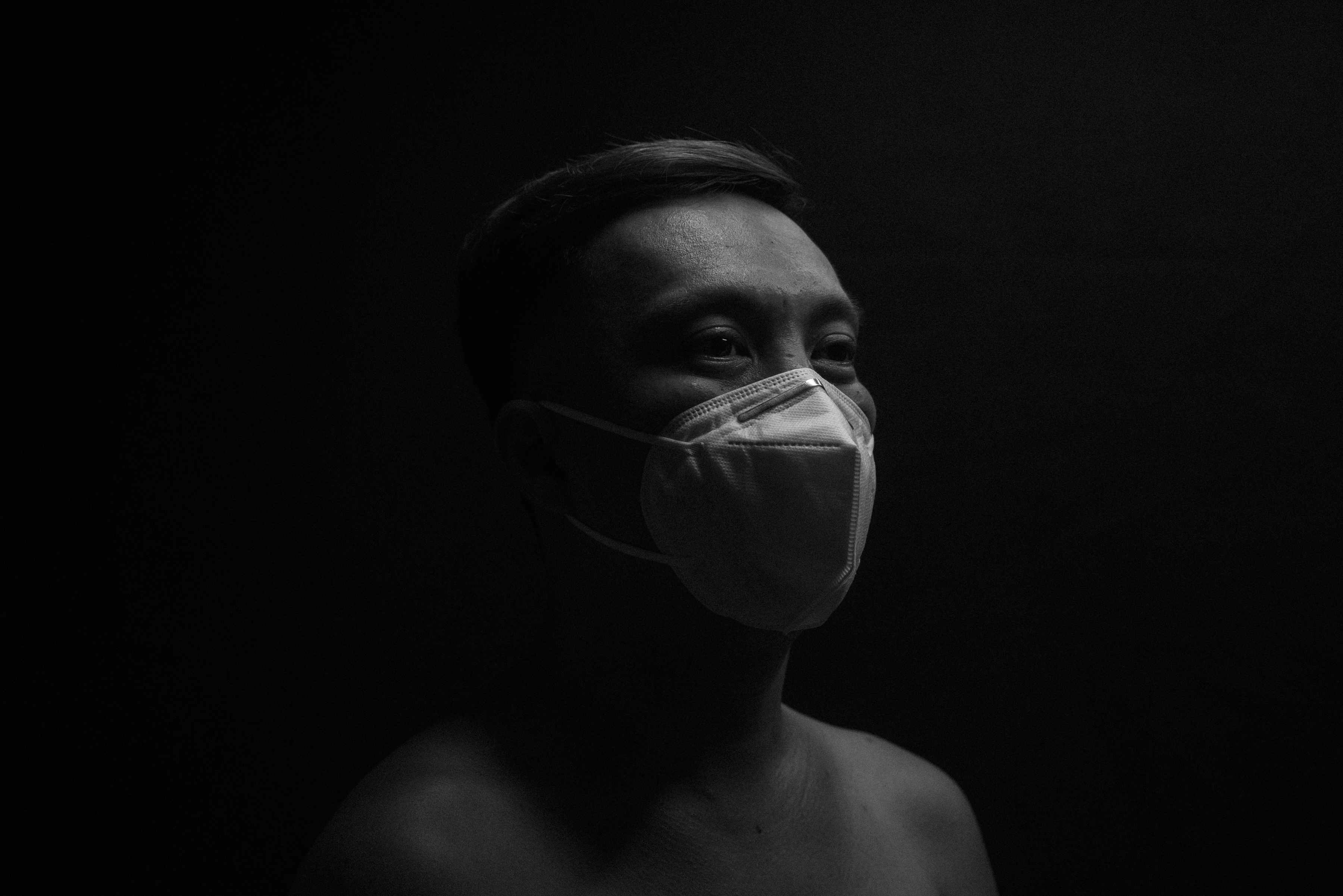
June 12, 2020
Independence From Fear
Letters written before Independence Day but never sent
3/27/2020
Dear friends,
The things that are happening today are beyond us; they have gotten out of our control.
Cough and a scratchy throat never bothered us before. A temperature of 38 c in addition, meant that we should probably stay in bed, take Biogesic and hot calamansi juice, and put off plans for the following day; things would be fine tomorrow. We were used to periodic illnesses that never lasted longer than 3 days. Nowadays, sore throat in combination with cough and fever already drives us nuts. What we read in the papers and watch on television create symptoms that we hope we are just imagining. Our malady extends from body pain to mental anguish, even before the test is even done.
When the test turns out to be positive, the weight of the world collapses on us. We hear about patients who were strong one day, transferred to the ICU the next day, and dead the following day. It must be absolutely horrible to test positive for COVID, and the thought of what is to come must be unbearable as one starts experiencing shortness of breath. In fact, sore throat and cough can no longer be dismissed nonchalantly.
When I started to experience a sniffle and a sore throat the other day, I had myself tested. It was a good opportunity for a hospital CEO to check on the facilities at our CRU (COVID Rescue Unit). The young doctor who swabbed me was impressively skilled and professional. He asked me first what symptoms I was experiencing. Having those mild symptoms distinguished me from the senator who had himself tested just because he wanted it, a request based on the privilege of his position. The procedure was uncomfortable but quick. I was asked for my contact number, so I gave my mobile and office numbers.
Within 30 minutes after, my secretary frantically called to ask how I was because somebody from the CRU called to inquire about my whereabouts. Our system was efficient! That’s when I realized that I had to comply with the quarantine instructions for those who undergo testing: to stay home. The thought of the scandal involving another senator who tested positive but who brought his wife to Makati Medical Center dawned on me: what would happen if no less than the CEO of Medical City was seen walking around the hospital and his test turned out positive. I quickly picked up my stuff from the office and left for home.
Waiting for the test result was mental torture. How come I am feeling chilly even without fever? Is my sore throat scratchy? Am I just overweight or is this shortness of breath real? How do I assess my sense of taste even with a good appetite? What if my symptoms get worse in the middle of the night? What if l can no longer give instructions to my family where to find my legal and financial documents, who contacts whom? Should I update my will? The movie playing in my mind was dark, and the horror was real. My wife and children were reassuring – from a distance. But the anxiety in their faces was the reason why I had to keep my composure. Once again, humor made the thought of dying lighter.
I was in a trance preoccupied about the air entering my lungs, the weight on my back and the weakness of my legs as I looked at the mirror while I brushed my teeth that Sunday afternoon, 3 days into my quarantine. My wife in the bedroom just blurted it out, “Your test is negative!”. Apparently, she had been quietly following up at the lab for the result. Immediately, as in right there and then, everything I was feeling disappeared, and what I saw in the mirror was a face in repose. Truly, the mind works miracles. Our fear takes us to where we need not be.
Let us stay focused not on what we fear, but on what fear prevents us from achieving. Good things will fall into place thereafter.
Yours truly,
Gene
4/17/2020
Dear patients:
Fear is everywhere. You have been afraid like everyone else, and the psychiatrist asserts that it is okay. As you comply with the government directive to stay home, your fears assume various faces as tuning in to world news in cable TV becomes irresistible, and turning off your smartphone is near impossible. The spectrum of one’s state of mind these days is from unhealthy paranoia to reckless abandon, from irrational fear to fatalism. And this is going to continue way beyond 2020, as the world rushes to create a vaccine, and as our government still figures out how to govern and put its act together.
You’ve spent your days in enclosed environments, and as your muscles become soft, and joints stiff, your mind has probably begun to see the dark clouds in the horizon within the 4 walls of your homes. Your understanding of health influences your values and choices, and the kind of doctors you seek help from. The doctor that you have learned to trust, and the confidence that he has helped you to acquire over time, defines your relationship with him. He is the cure that no medicine can replace. The COVID-19 crisis has not only isolated you from him, it has left you scared and alone in this time of fear and death. Imagine if it is your doctor, himself, who dies.
Between going to the hospital and staying home, you have preferred to stay home and just pray that your symptoms would go away. After a while, the symptom that you feel you can no longer discern: is it real or is it all in your mind? Thank goodness for telemedicine, at least an electronic assurance from your doctor gets you by. Both you and your doctor get by, actually, because he is probably as worried for you as you are for yourself. And to my own patients, when I gave advice recently that it was safe for you to go to the hospital and see me in my clinic, many of you believed me and showed up. That meant something! But many more did not go, because they could not even when they wanted to. No public transportation! One more government short-coming that frustrates but no longer surprises!
These are unprecedented times. If the virus does not get us physically, fear and despondency can drive us to irrational behavior. Ironically, it is precisely the crisis – and the long quarantine that we have to put ourselves through – that gives us the opportunity to reflect on what really is important to us and how we must fend for ourselves without expecting help from our government. Without doubt, the importance of health is what this crisis points out to. It is an investment that delivers profit of real value over time - good health that defines life and predicts the future of our nation.
How we look at health influences our behavior and affects our choices. You may ask, how does one acquire and maintain a health-seeking behavior in the time of COVID-19 when everyone is in a state of fear, and the government cannot do much to assuage such fear? We are all on the same boat; there are forces and phenomena that are beyond our control. We appreciate the importance of health now because the prospect of death is real. The enemy is just around the corner, and we don’t even know what it looks like. In the end, we simply have to process our fears and embrace them, because that is the best way, the only way, that we can move from here… to there.
Sincerely yours,
Eugene F. Ramos, MD
6/14/2020
Dear fellow doctors,
We have been defined and described in many ways by various sectors under different circumstances, but what stands out is what has been true throughout history: we are members of a noble profession that human society highly respects. Because we save lives, and when we cannot, we provide comfort and relieve pain. Because when death is imminent, we face our patients’ fear with calm and composure. Because we can take it all in, and become the pillar of strength that our patients hold on to.
We are fundamentally science-based, experience-guided, patient-centric, service-oriented, generous and selfless. We encounter pain, fear, and death as part of our work, but we also experience joy and catharsis in a manner that only our healing profession can provide. It is a profession that transforms those who take the time to inhale its breath. But it also has its caveats; it gives us a wide latitude to leverage our self-worth. By the nature of our specialized education, we put a high value on age and time, representing experience, wisdom, and the long years spent in training and hurdling difficulties. We expect – and rightly deserve – a higher level of respect, just as we also institutionalize a deference to the scientists and mentors who came before us who have risen to the top of the totem pole in the hierarchy of medical expertise. Understandably, our esteemed profession has developed in us a sense of entitlement, an intolerance (reluctance, if you may) to what challenges the status quo.
The rapid changes in healthcare in the last decade that have brought digital technology to the fore have begun to disrupt the status quo and create a gap between the young members of the profession who are more attuned to technological advances, and the older members who are not able to adapt as fast. While change has to be managed, resistance to change has to be addressed strategically, patiently, and with sensitivity. And then without sufficient warning, the COVID-19 pandemic stunned the whole world.
Suddenly, everything started happening very fast, and our diverse coping mechanisms only served to reveal the wide divide between the old and the new, the resistors and the reluctant adapters. No doubt, everyone acknowledges the need to adapt, it is the speed with which to adapt that threatens to disturb the balance – the equanimity that promotes stability in the way we practice medicine.
What the COVID-19 crisis has forced us to confront – discoveries about ourselves that we didn’t see before – now provides ease, comfort a new-found knowledge, that we can achieve a lot more when we work together as a team – doing what we can when we can, where we can, and contributing to solutions to the difficulties that our hospital and communities have to bear. There are many of us who will take a little more time to disengage from their individual interests, but there a lot more who are ready to chart a new path for the medical profession, where the New Normal takes us, knowing fully well that there is no turning back even when all the vaccines from many competing manufacturers come.
Just like every human being, this pandemic has confronted us with the truth – that life is short, death can come quickly, and there is really no time to prepare for it, and that the many things that we value – those things that we own, hold on to zealously and fight for – really have little value. How then must we discover our purpose? What is our relevance in a world that periodically reboots and refreshes itself as it continuously evolves?
The entire world expected us to be at the forefront of this health crisis, to be in control of our fears as we faced the fears of those we serve. But as the death toll started to rise, and our fellow healthcare workers started to lose the fight, we started fearing for our own safety, because the healthcare system was about to collapse, and there was no government to rely on. And then, like a happy ending to a movie, all sorts of help came – from all sectors of society – and we survived to see another day, and another, and another. Now as we see the horizon, the New Normal, we ask ourselves, what have we learned?
How do we change ourselves to adapt to the new way of thinking, the new way of behaving? Where do we contribute? How do we acquire relevance in a world where everyone has to fend for himself? Is it still about ‘me’, or must we already move forward to contribute to a bigger purpose, the power of ‘us’?
The pandemic is still with us. June 12, 2020 had come and gone, but Independence Day remains an illusion. Freedom from hunger and disease, from abuse and subjugation, from regular pain inflicted by a system that thrives on incompetence if not corruption, from inequality and injustice, discrimination and fear. Indeed, we have a lot to work against, and to work for. What can we do? What must we do? We can start appreciating the significance of simple things: we can push back fear from overcoming us and stunning us into inertia; we can snap out of our comfort zones and jog our capacity for extraordinary energy; we can inspire and empower our younger colleagues to improve upon our legacies: our dedication to duty.
What we have done so far is draw a balance between prudent vigilance and calculated mobilization. That, by itself, calls for personal leadership, the strength to rally everyone behind the “power of us.”
Respectfully yours,
Eugene F. Ramos
Read more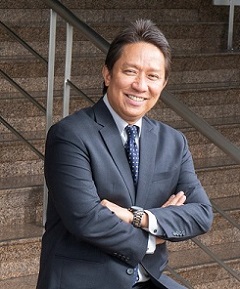
December 20, 2025
Dr. Eugenio Jose F. Ramos
Dr. Eugenio Jose F. Ramos is the President and Chief Executive Officer of The Medical City. Previously, he served as the CEO of The Medical City Iloilo; Director and Chief Operating Officer of Medical Arts Tower, Inc., Director of Proser Health Services Inc., PSI Healthcare Development Services Corp., The Medical City Clark Inc., Guam Healthcare Development, Inc., and The Medical City South Luzon. Dr. Ramos earned his medicine degree from the University of Santo Tomas Faculty of Medicine and Surgery in 1980. He took up his internship and residency in Internal Medicine at The Medical City (1980-1984), and his fellowship training in adult cardiology at the UP-PGH (1985-1986). He is a diplomate and fellow of the Philippine College of Physicians (PCP) and of the Philippine College of Cardiology. He was awarded Distinguished Fellow of the PCP in 1999. Dr. Ramos obtained his MBA in Health at the Ateneo Graduate School of Business (AGSB) in 2008 (gold medalist). Dr. Ramos became PCP’s 45th president in 2009.
Read more